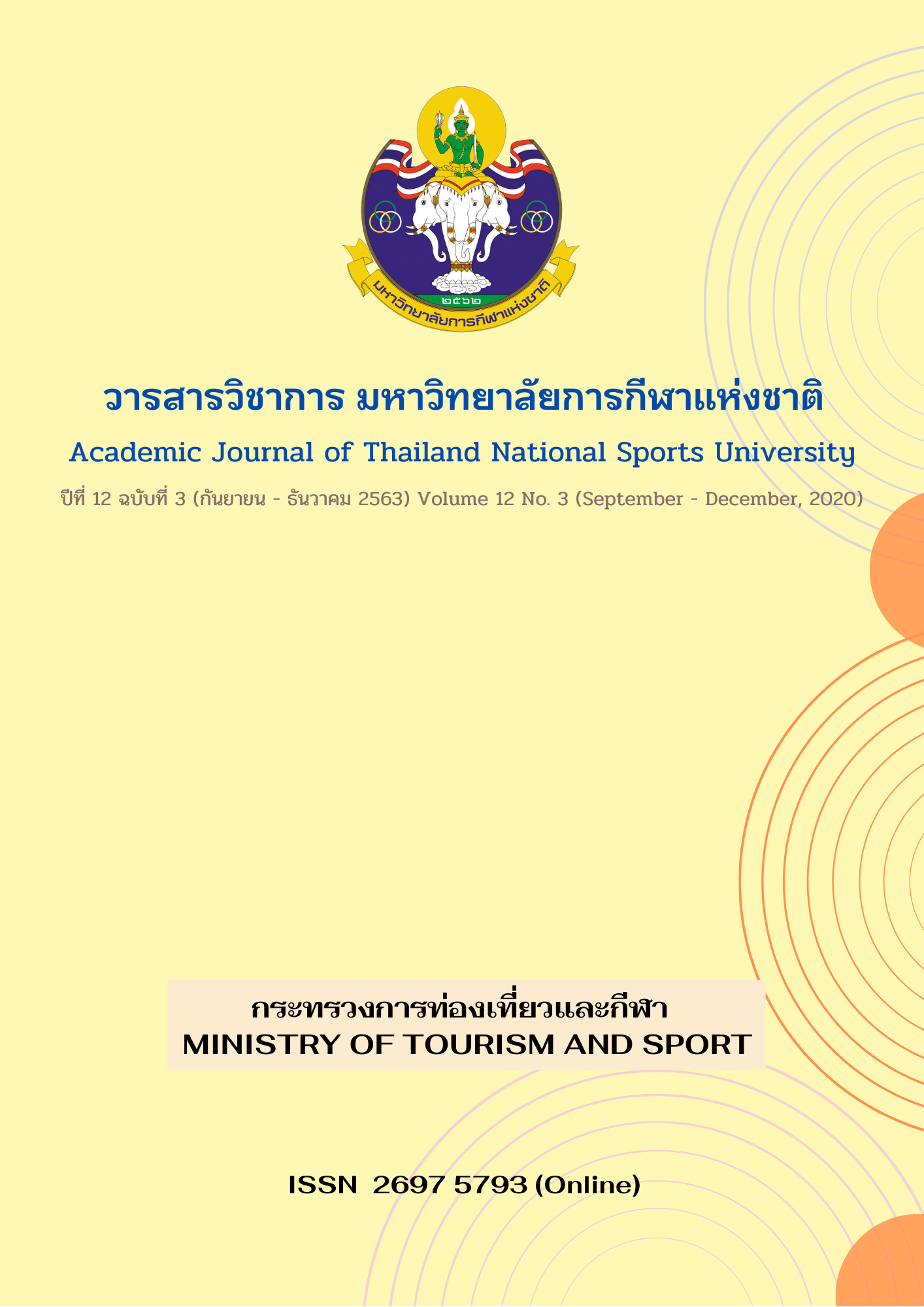THE EFFECTS OF ACTIVITY MANAGEMENT MODEL USING TRANSFORMATIVE LEARNING THEORY AND TRANSTHEORETICAL THEORY FOR REDUCING ALCOHOL DRINKING BEHAVIORS OF UNDERGRADUATE STUDENTS
Main Article Content
Abstract
The purpose of this research was to investigate the effects of activity management model using transformative learning theory (TLT) and transtheoretical model (TTM) for reducing alcohol drinking behaviors of undergraduate students. The samples used in the research were undergraduate students with alcohol drinking behavior at the hazardous level from AUDIT (Alcohol Use Identification Test) assessment of the World Health Organization (WHO). They were selected by the purposive selection method. There were 60 voluntary students participated in this study and divided into 2 groups, 30 students in the experimental group and 30 students in the control group. Both groups showed similar average alcohol drinking behavior. The tools used in the research were 10-activity management model in 6-week trial. In addition three forms of knowledge, attitudes and alcohol drinking practice were assessed. Data in the pre-trial and post-trial stages were collected. The data were analyzed using mean, standard deviation. The differences of reducing alcohol drinking behaviors average scores of the experimental group and the control group by using t-test.
The results of the study showed that activity management model using TLT and TTM for reducing alcohol drinking behaviors of undergraduate students resulting differently in terms of knowledge, attitude between the experimental group and the control group with statistical significance at the level of .05. This model using TTL and TTM with 10 activities had an effect on reducing alcohol drinking behaviors of experimental group.
Article Details
The published article is a copyright of the Academic Journal of Thailand National Sports University. The passage appeared in each article in this academic journal is a perspective of each author which is not related to the journal. Each author is required to be responsible for all components of his/her own article. If there are any mistakes, each author must be responsible for those mistakes on his/her own.
References
Aimutcha Wattanaburanon. (2013). Principles of Health Education. Bangkok: Oden Store.
Benjawan Phothinee. (2014). Motivational interviewing and cognitive behavioral therapy for alcohol reduction in patiens with Schizophrenia in community. Unpublished Master’s thesis, Faculty of Nursing, Khonkaen University.
Center for Alcohol Studies. (2013). The Situations and effect of alcohol consumption in Thailand in 2013. Nonthaburi: The Graphic System.
McCarthy, P.M. (2008). A brief cognitive behavioural therapy alcohol intervention programme is an effective secondary prevention approach for new employees entering an irish workforce: A pilot evaluation. University College Cork, MA Behavioural and Cognitive Psychotherapy.
Mezirow, J. (2000). Learning as transformation: Critical perspectives on a theory in progress. San Francisco: Jossey-Bass.
National Statistical Office. (2015). The survey results of smoking behaviors and alcohol use of population in 2015. Retrieved from http://portal.nso.go.th/otherWS-world-context-root/indext.jsp
Prochaska, J.O. et al. (1994). Stage of change and decisional balance for 12 problem behaviors. Health Phychology, 13(1), 39-46.
Tissana Khammani. (2017). Teaching Science: knowledge for organizing effective learning processes. Bangkok: Chulalongkorn University Publishing House.
WHO. (2014). List of countries by alcohol consumption per capita. Retrieved from https://en.wikipedia.org/wiki/List_of_countries_by_alcohol_consumption_per_capita


